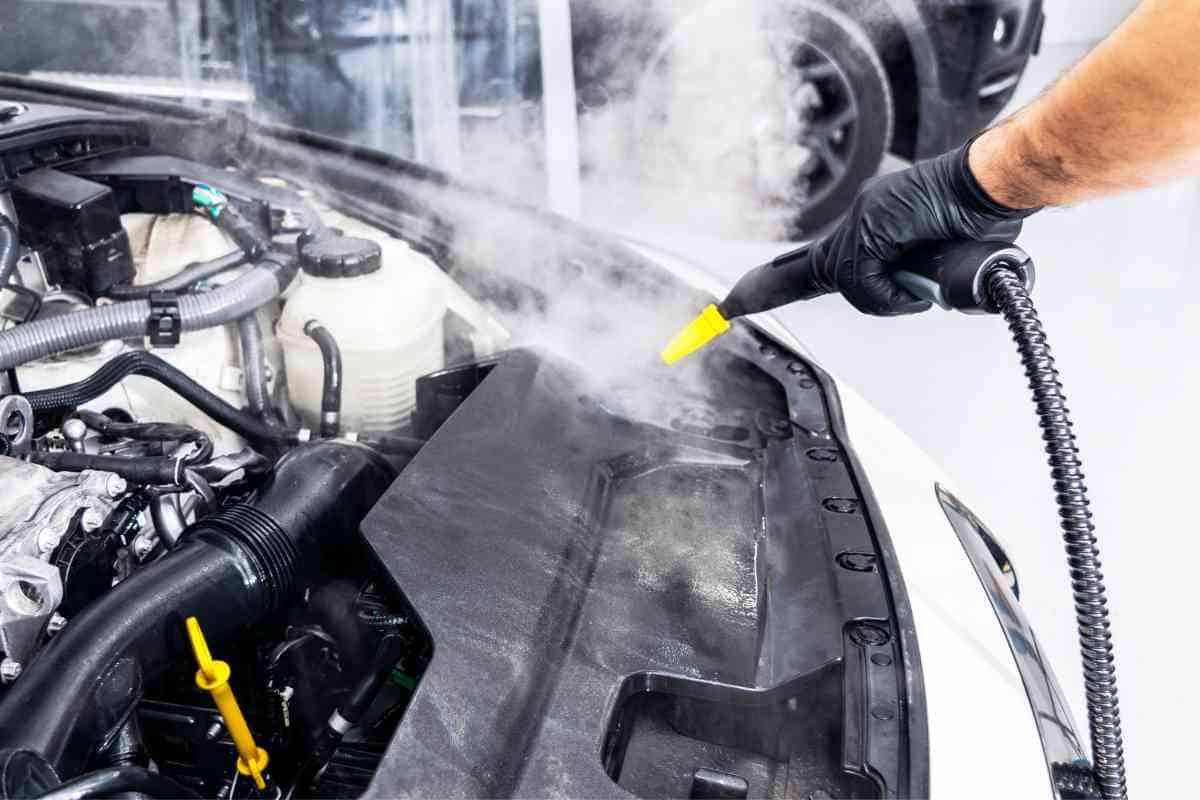How Hot Does A Car Engine Get? Answered!
The engine is the heart of a car. It powers the vehicle and is responsible for how hot its internal components become. But how hot does a car engine get?

How Hot Does A Car Engine Get?
The preferred car engine temperature should fall between 195°F to 250°F and 300 to 400°F for some special cars. However, the temperature above these readings indicates overheating, which can further destroy car parts. So, work to lower the heat and have a mechanic check the car.
We researched and consulted engineers about the temperatures considered normal for an engine, what can make those temperatures range widely from average, and why maximum heat capacity exists.
What is the Average Temperature of a Car Engine?
The typical temperature range for most automotive engines falls between 90°C and 104°C.
These temps vary depending on several factors such as vehicle type (cars, trucks, or SUVs), your car’s brand/make/model, engine size, and even driving environment like city streets versus highway cruising speeds.
Generally speaking, you should expect your engine light to illuminate if temperatures exceed these marks while operating. Take caution if you suspect your gauge readings may be inaccurate.
What is the Maximum Heat Capacity of an Engine?
As with any combustion-based system, heat must be dissipated to operate efficiently. The maximum heat capacity of an engine is the temperature at which the components would fail due to excessive heat levels.
This can be as high as 250°F if your car has been running for an extended period or under extreme conditions, such as hauling heavy loads uphill and in hot weather.

How to Gauge an Engine’s Temperature
Most modern cars have a dashboard gauge that reads engine temperature, although some older models may not have this feature built-in.
If you have one, any reading above 220°F should be looked into further by immediately taking your car in for inspection.
In other cases, you can look for signs such as steam coming from underneath the hood or strange noises while driving. These could indicate temperatures higher than average and should also prompt an immediate visit to your mechanic.
Common Causes of Overheating in Engines
There are several causes of engine overheating, and they include:
A Leaking Cooling System
When your car’s cooling system has an air leak, it can cause the engine to overheat. This is because the coolant drips through the puncture, creating a gap for air to get sucked in.
The air comes in the form of a bubble, which settles on the top part of the cooling system, which results in the coolant not being able to push through the system, thus overheating.
Condensed Coolant
During the cold season, especially winter, when the temperature drops, the coolants can become concentrated and cause blockage. This results in an overheated engine and could also damage the radiator.

Low Oil Levels
Engine oils help your car’s engine cool by preventing heat build-up. It keeps various parts of the car engines well lubricated, thus, preventing overheating.
It’s believed that car oil eliminates about 75% to 80% of unused heat in the engine.
Faulty Water Pump
One of the reasons why your car engine may overheat is inadequate water, which helps maintain the cooling system circulation.
And a defective water pump means that the impeller will not turn, thus preventing water circulation.
The Combustion Chamber and Its Role in Temperatures
The combustion chamber is the area within an engine where the fuel mixes with air, and spark plugs ignite it producing power for movement. The heat generated by this process must be kept in check, or it will cause damage over time.
Pistons and valves are designed to contain the heat generated by combustion, but if temperatures exceed their capacity, they will melt and fail.
This is why the maximum heat capacity of an engine is important to understand so that you can ensure your car does not reach this temperature under any circumstances!
What is the Normal Temperature of an Engine Block?
The normal operating temperature for most engine blocks should be around 200°F (93°C). However, some engines may run slightly higher or lower depending on factors such as make/model and maintenance levels.
If your gauge reads above 220°F, however, it could indicate a problem within the system that needs addressing immediately – particularly if accompanied by other symptoms like smoke coming from under the hood!
How Hot Does a Car Engine Get in Celsius and Fahrenheit?

As mentioned earlier, a car engine typically runs between 195°F (90°C) to 220°F (104°C).
However, it can reach higher temperatures depending on how long it has been running, the load carried, and other factors.
Celsius equates to around 90-108 degrees, meaning that hotter climates may require more frequent checks of your engine’s temperature to ensure safe operation.
Can Dashboard Temperature Gauges Effect Engine Temperatures?
Dashboard gauges are designed primarily as a warning system for drivers so that they know when their engine is reaching dangerous levels – but they do not directly affect the engine’s temperature.
However, if the gauge is malfunctioning, it could lead to over or under-heating, which could have serious consequences if left unchecked.
Therefore, regular maintenance of all dashboard gauges is important to ensure your vehicle isn’t running too hot at any time.
What is the Role of Coolant in Regulating Engine Temperatures?
Coolant is an essential component within an automotive system as it transfers heat away from internal components and into areas where it can be dissipated safely outside the vehicle’s frame.
Without coolant present within an engine, temperatures would quickly rise above what its components were built for, resulting in damage and possible failure down the line.
General Tips for Keeping Your Car’s Engine Running at Normal Temperatures
Several simple steps will help keep your engine running at normal temperatures.
- Use Anti-freeze
- Drive steadily
- Change your oil and coolant regularly, as this helps maintain optimal performance levels. Second, ensure that all components, such as hoses and belts, are in good condition
- Fix any leakages as they can cause the engine to work harder than it needs, increasing temperature readings.
- Finally, check your dashboard gauge regularly to know when to visit the mechanic.
Key Takeaways
- Average temperature range of car engines is between 195°F (90°C) and 220°F (104°C).
- Temperatures could exceed this range depending on load or weather conditions.
- Drivers must check their dashboard gauges regularly to avoid running their car too hot.
- Coolant helps to keep the engine within its recommended temperature.
- Maintenance should always be kept up-to-date to avoid any overheating damage.
